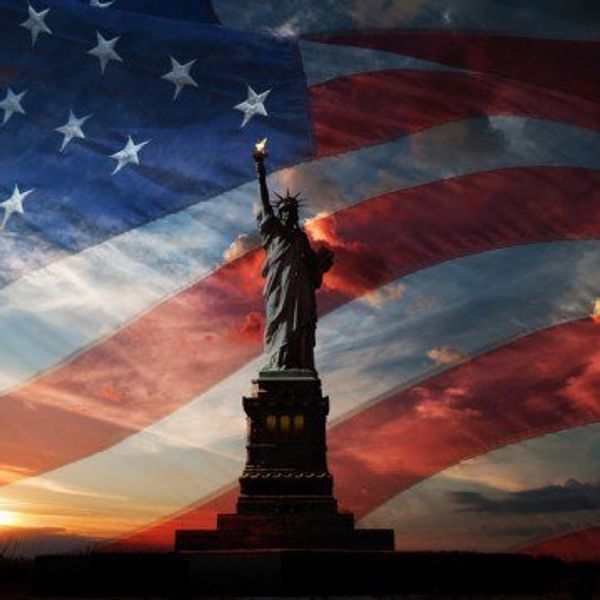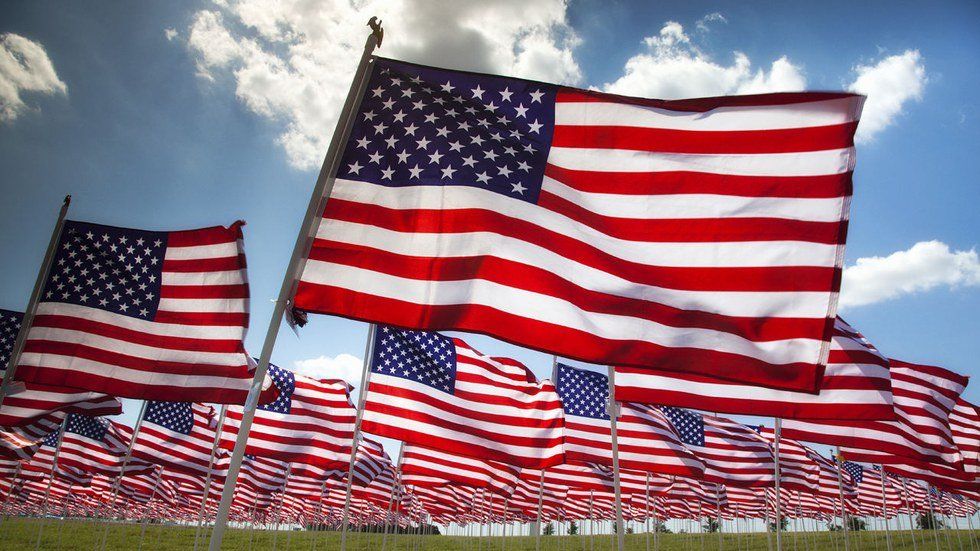Have you ever dreamed of a Utopia?
You know, that imagined place or state of things in which everything is perfect. Where the people are perfect, where even the government is perfect?
Well, this is exactly that paradise that Sir Thomas More so mundanely exaggerated in his novel Utopia in 1516. He stated and I quote: "Instead of man being worried about food and supply, the Utopian can feel absolutely sure that he, his wife, his children, his grandchildren, and his great-grandchildren as long a line of descendants will always have enough to eat and enough to make them happy.” This was a man who was so rooted in his belief that one could actually achieve this “utopian” place; that one could so desperately work to produce affluent results.
This is the very essence of the American dream.
You know, that belief that one can settle down in the United States of America, receive opportunities, work hard, and can eventually meet success. James Truslow Adams said in his 1931 novel The Epic of America, “American dream is that dream of a land in which life should be better and richer and fuller for everyone, with opportunity to each according to ability or achievement.”
We’ve all learned of this to be the basis of our country’s values. But before we even had this established American Dream, we had the mere dream of just freedom; we had the dream of freedom of individuality and equality for all. However, "Freedom for all” isn’t as evident today as it should be. The fact is that the American Dream isn’t as glorious as it may seem. This opportunity to succeed and prosper in this heavily industrious country is no longer open to just anyone. It is only attainable to a select number of qualified individuals.
The issue here begins with the sentiment of xenophobia in early America.
Xenophobia is the fear of foreigners, which greatly influenced the early settlers and future leaders of our country. We’ve seen in history the ways in which our leaders have handled differences in groups of people. In 1829, Andrew Jackson, the seventh president of the United States, in his first address to Congress stated “By persuasion and force they have been made to retire from river to river and from mountain to mountain, until some of the tribes have become extinct and others have left but remnants to preserve for a while their once terrible names.”
Some wonder why the American Dream could never be a reality, and this quote helps to prove why it can never be. How did we ever expect to fulfill this dream, when our leader, a person who is supposed to be the staunch supporter of the opportunities and freedom of this country, had a goal to completely wipe out a whole tribe. A whole tribe? A whole tribe is someone’s culture, someone’s basic values, and someone’s home, and it was taken away because he or she was “foreign” to the early settlers.
A year later, the same president passed the Indian Removal Act, and had the Native Americans removed from their land, their homes, and had them moved to foreign lands. It is already interesting enough to note that Native Americans are the indigenous people of the country that we claim to be ours today. There is no way that the American Dream can be a part of our reality when we choose to outcast others due to the fact that they are different.
American society began to develop overtime and, as of today, has become reluctant to accept the individuality of others.
This has resulted in widespread inequality in our country. We have classified people into various categories: by race, culture, sexual orientation, gender, economic status, etc. We have also emphasized the gender roles: that man works and provides for the family, and women stay home, cook, clean, and take care of the children. Where are opportunities when these roles can be reversed? Why have we wrapped our mind around a belief that specific jobs are classified to men and specific jobs are classified to women?
It should be equal opportunity for all regardless of sex. Up until this day, we have chosen to belittle rather than encourage, we have chosen to marginalize rather than accept.
But isn’t diversity the value that makes this country the melting pot that it is?
This value of equality sparked the passing of the thirteenth, fourteenth, fifteenth, and nineteenth amendments. These amendments were the turning point of American history: when slavery ended, when African Americans gained the right to vote, when African Americans were seen as natural citizens, and even when women finally gained the right to vote. These amendments were passed in the name of equality; in the name of equal opportunity to be able to reach that point in life when one can rest in his or her affluent society.
Look around yourself whenever you go to a grocery store, school, or even the movie theatre. Diversity is there. People of different races, religions, and cultures are there. But you do not need to allow these differences to completely deteriorate the goodness behind it. When there is diversity and it is fully accepted and utilized, there is an endless road of opportunities.
I, myself, used to struggle with the fact that I knew I was a little different from others. I knew that I was my own individual, but it felt very odd to know that I was my own person. I used to sit down daily to pick out one thing to another of differences between myself and others. Let me tell you, it was miserable. Then I said to myself “Hey, you are you, you cannot be anyone else, you are obviously different but make good use of your differences.” Good…that’s a good word to use. It was never in the best interest of anyone to choose to use differences and originality in a negative manner. Why not accept others and who they are? Why not just simply say to yourself “We are all different and with these differences we can continue to prosper and bring ourselves and the country that we love so much, into a state of equality when no one feels the need to just label.”
There’s one simple and VERY simple solution to this issue.
Let’s work together, hand in hand, regardless of our differences, and go forth to begin to accept others and their individuality. We can work on being more tolerate of diversity, and to appreciate diversity in character. We can learn to put our foot down and reject the out casting of “foreigners.” We can be the face of a nation that actually advocates this belief.
If we can stop putting labels on people and groups of people, we will definitely have an opportunity to make this American Dream a little less taboo. As stated in the opening lines of the Declaration of Independence: “We hold these truths to be self-evident, that men are all equal, that they are endowed by their Creator with certain unalienable rights, that among these are life, liberty, and the pursuit of happiness.” These words were written down with the intent of actually making it a part of the American life; of always referring back to equality when worse came to worse. What I know for sure is that this dream, this American dream, has no space for inequality. Once we learn to change inequality to equality, we can achieve The American Dream.
We can dream if we allow ourselves to. But what is a dream when the dreamers don’t see the big picture?





















